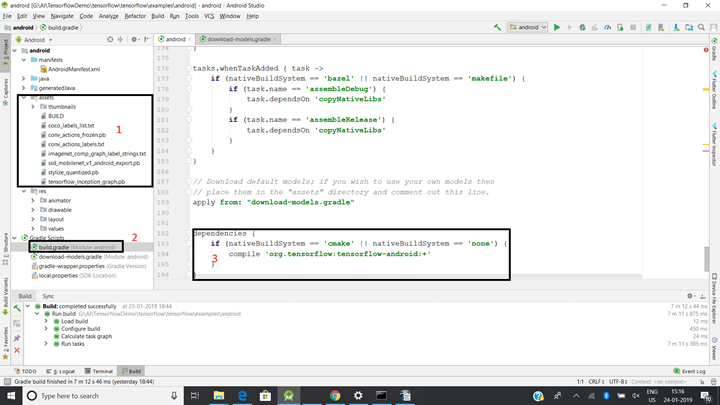

- Android studio download sample apk#
- Android studio download sample install#
- Android studio download sample generator#
If you have an open project close it with "File" > "Close project". To know the path of the android studio sdk, open android studio.
Android studio download sample install#
zip, you'll have to install it in the "ndk" folder of android studio sdk. OF 0.10.0 has been tested with the NDK version r15c, newer versions might work but it's not guaranteed.

This is the C/C++ compiler, headers and libraries for Android. In the event that Android Studio does not come with an SDK, you can install it from (under "Get the SDK for an existing IDE"). It should come with (or automatically install) a recent SDK, though you can customize the SDK version later from within Android Studio using Tools ➞ Android ➞ SDK Manager. Installation Install Android Studio and the SDKĭownload and install Android Studio from (you need Android Studio 1.0 or higher).
Android studio download sample generator#
Use the Project Generator to generate Android Studio project files for android examples.Run scripts/android/download_libs.sh to download libraries.Download openFrameworks from the download page or from git.Install the Android NDK (actually tested version is r15c).Install Android Studio and the Android SDK.
Android studio download sample apk#
It builds the Instant App APK that the user views without downloading the app.Setting up openFrameworks with Android Studio is fairly straightforward. The adle of this module looks like: apply plugin: '' The adle of this module looks like: apply plugin: ''Īpi ':appcompat-v7:26.1.0'Īpi ':constraint-layout:1.0.2' The base feature module contains shared resources, such as activities, fragments, and layout files. All other feature modules must depend on the base feature module. The fundamental module of your instant app is the base feature module. This is how the project structure for an instant app looks like: To open the tool goto: View | Tool Windows | Android Profiler These new profiling tools provide real-time data for your app’s CPU, memory, and network activity. The Android Profiler tool in Android Studio 3.0 replaces the Android Monitor tools. It can be enabled from File | Project Structure as shown below: Unlike the previous versions of Android Studio wherein you had to enable third-party plugins,Īpply plugin: 'me.tatarka.retrolambda' Android Studio 3.0 has inbuilt support for Java 8. So unless your module doesn’t leak its interfaces with other modules, implementation should be used. Typically all compile statements are replaced with implementation.Īn implementation statement rebuilds only the single module whereas the api statement would rebuild all modules that are dependent on the current one. With the introduction of Android Studio 3.0, the keyword compile is deprecated. Implementation ':constraint-layout:1.0.2'ĪndroidTestImplementation ':runner:1.0.1'ĪndroidTestImplementation '.espresso:espresso-core:3.0.1' Implementation":kotlin-stdlib-jre7:$kotlin_version" Implementation fileTree(dir: 'libs', include: ) ProguardFiles getDefaultProguardFile('proguard-android.txt'), 'proguard-rules.pro'

TestInstrumentationRunner ".AndroidJUnitRunner" Apply plugin: 'kotlin-android-extensions'ĪpplicationId ""


 0 kommentar(er)
0 kommentar(er)
